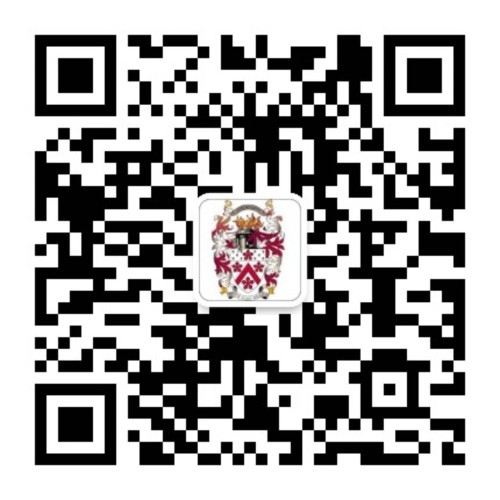DHSZ Alumni Talk|Howard Huang
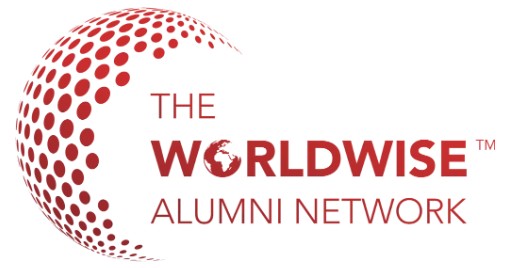
The DHSZ Alumni Talk series has always been dedicated to capturing the stories of those who once walked our campus and are now shaping the world beyond it. No matter where they are today, each alumnus continues to extend the Dulwich spirit, a commitment to curiosity, courage, and lifelong growth.
From academic research to professional choices, from adapting to university life to navigating the workplace, every conversation in this series offers a unique reflection on what “growth” truly means. These stories remind us that learning doesn't end in the classroom; what matters most is how one keeps thinking, questioning, and finding their own direction in a rapidly changing world.
This year, we're taking the conversation one step further, not only reconnecting with alumni but also creating bridges between students and their futures. A group of current students have joined our production team as student interviewers, engaging alumni face-to-face, asking the questions that matter most to them, and helping to shape each episode from planning to filming. Through their lens, the series gains new vitality and resonance, a dialogue between generations that keeps growing.
This Episode
In this episode, we speak with Howard Huang, a graduate of the Class of 2016. From DHSZ to the London School of Economics, Howard graduated with First Class Honours in Statistics and Finance before joining PwCUK, where he worked in AI research. He is now an Algorithm Engineer at Ki Insurance, exploring the intersection of artificial intelligence and finance.
In the interview, Howard shares how he transitioned from statistics and finance into AI, how he helped build a generative AI research team at PwCUK, and what he learned about leadership, adaptability, and lifelong learning in a cross-cultural workplace. His journey reflects the emergence of new career paths in the age of AI — and how, amid rapid technological change, critical thinking remains our most enduring compass.
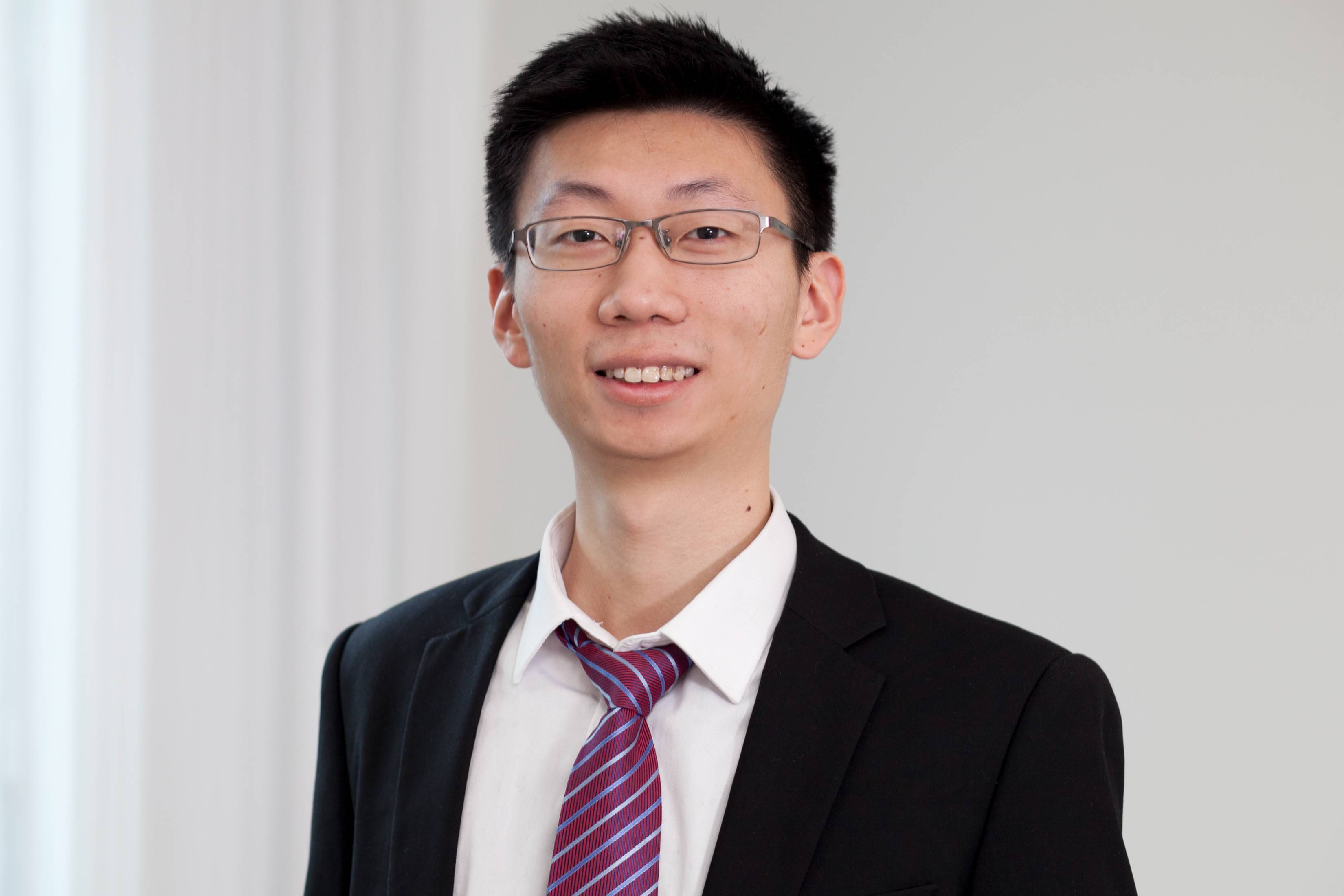
Howard Huang|DHSZ Class of 2016
- BSc in Statistics and Finance, London School of Economics (First Class Honours)
- Nearly 6 years at PwC London, rising from an intern to AI Research Division Manager and co-founding the firm's AI Research Team
- Currently Algorithm Engineer at Ki Insurance (Risk Modeling & Portfolio Optimization)
Erin, a Year 13 student and aspiring media and communications major, joined this episode as our student interviewer. Through her exchange with Howard, she discovered how technology and communication intersect; and how “soft skills” and lifelong learning matter across every discipline. These intergenerational conversations allow alumni stories to continue through new voices, offering students a window into the real world beyond campus.
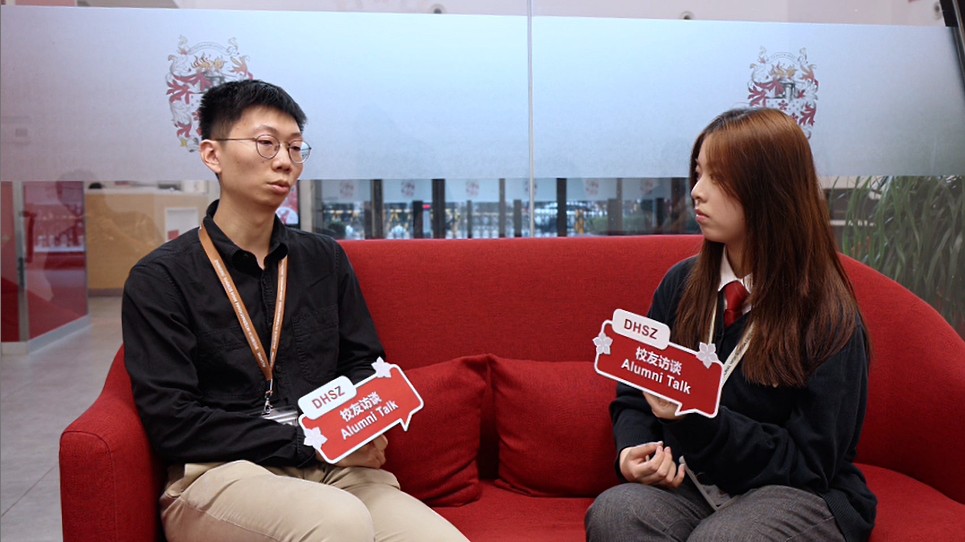
From Statistics and Finance to AI Research: The Resonance Between Interest and Direction
For many students, “what to do in the future” isn't a question with an immediate answer. Howard describes his own academic and career choices as a process of exploration and iteration. “Life is long… and as students, we're still quite far from society, so it's difficult to know exactly what you want to do at this stage.”
It was through trial and error that he discovered how statistics and AI combined analytical rigor with creative potential. Participating in internships and Kaggle AI competitions turned curiosity into practice, helping him align interest with purpose. His story reminds us that uncertainty isn't an obstacle , it's a method. Education, in his view, isn't just about acquiring knowledge, but about constantly redefining our relationship with the world. Uncertainty, he says, should be seen not as anxiety, but as capability.
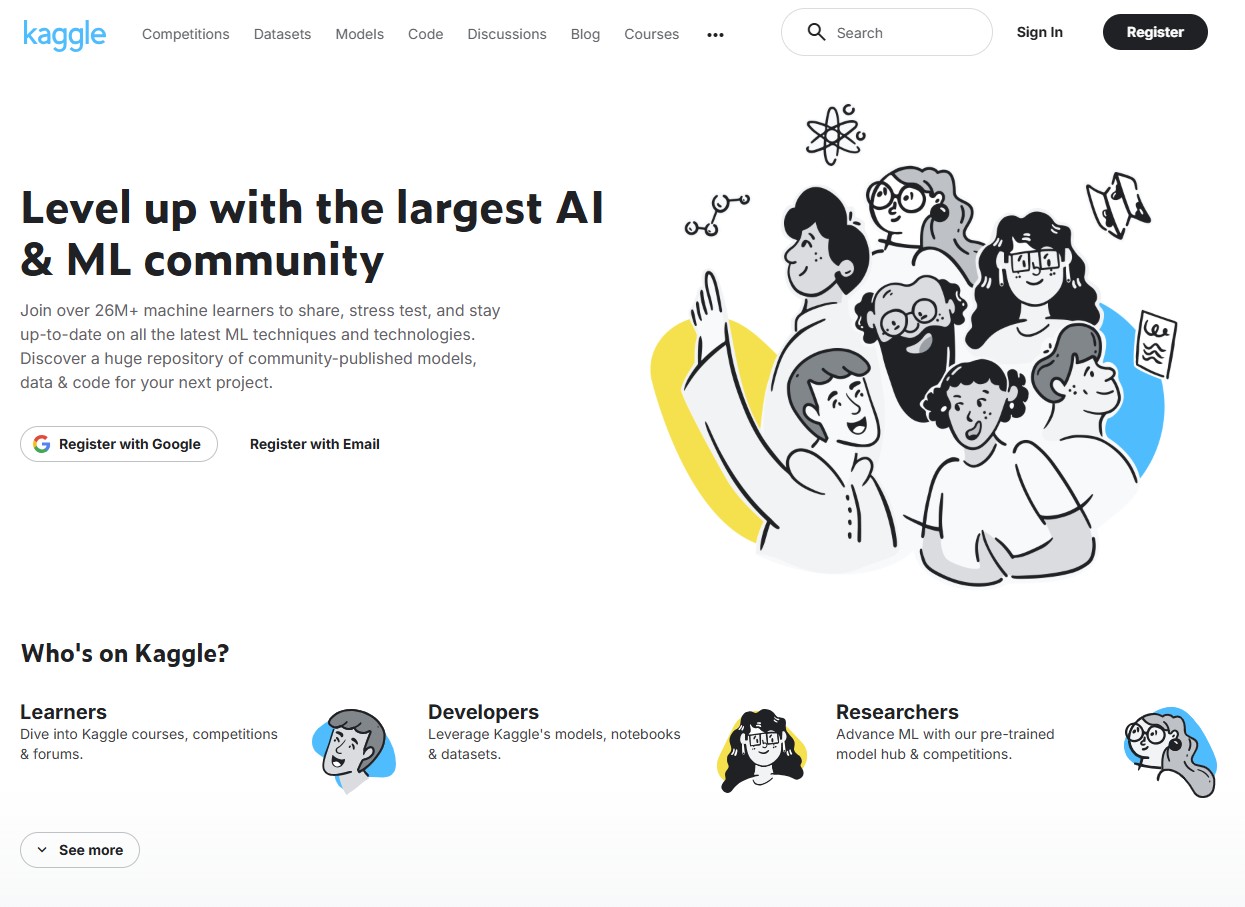
Seizing the Window of Opportunity: Acting Before the Wave Arrives
When Howard joined PwC UK, Generative AI was still a niche topic. In 2022, before ChatGPT entered the public eye, he and a few colleagues launched a small, unofficial research group to explore generative AI.
“There was no GPT-3.5 or ChatGPT back then… we started a small project group that wasn't even officially recognized.”
When GPT-4 went public and the world caught on, Howard's team had already built momentum: extending their research topic and growing into a 30-member division that helped redefine PwC UK's AI strategy. His story reflects not just technical foresight, but the courage to act amid ambiguity. In fast-moving fields, waiting for “clarity” often means missing the moment. The lesson is simple yet powerful: trends don't wait, those who act early define them.
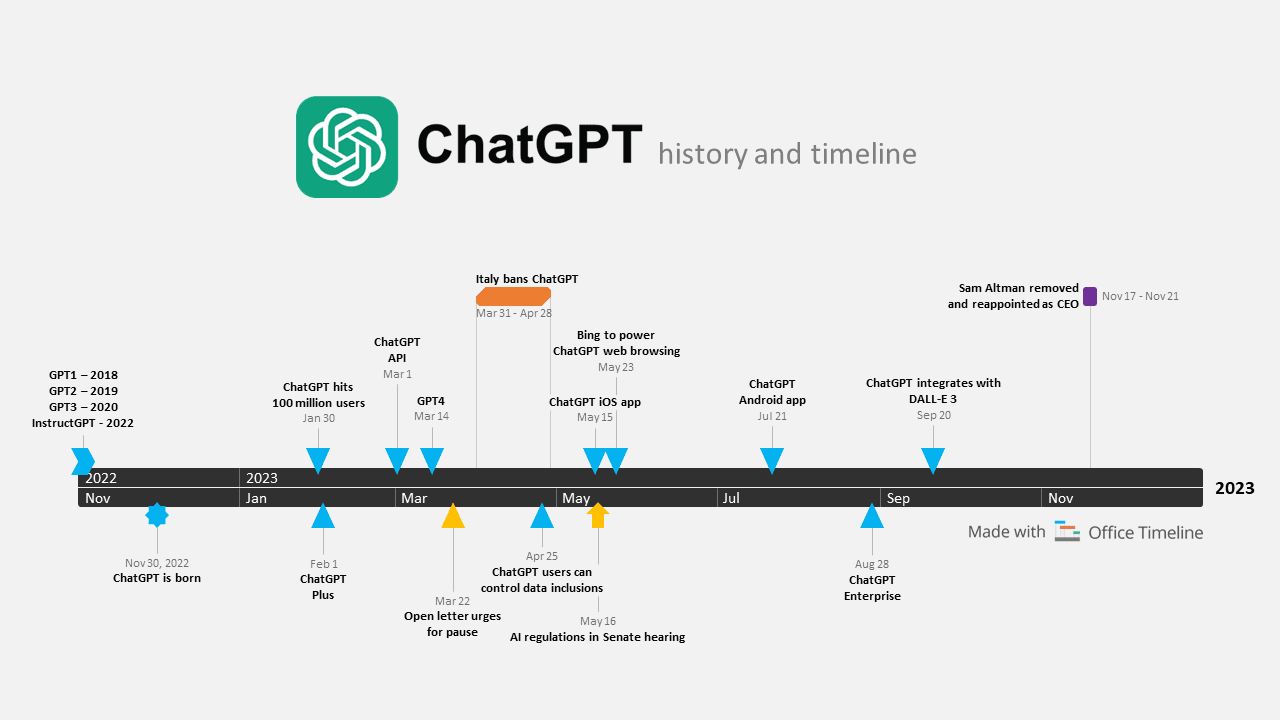
Beyond Expertise: From Doing Tasks to Leading People
When asked about managing PwC UK's AI research team, Howard didn't focus on algorithms, but on people. In multicultural teams, he explained that conflict often came not from differences in goals, but from differences in pace and expectations.
“Some people like to push hard… others prefer a more relaxed pace. Both are valid, my job is to balance them and keep the team in a good atmosphere.”
Leadership, he learned, isn't about control but about harmony. Emotional stability, empathy, and consensus-building often determine how far a team can go. Technology may change how we work, but communication and trust decide why we work together. This emphasis on “soft skills” echoes Dulwich's educational philosophy: education doesn't just build intellect, it shapes the emotional intelligence to navigate complexity.
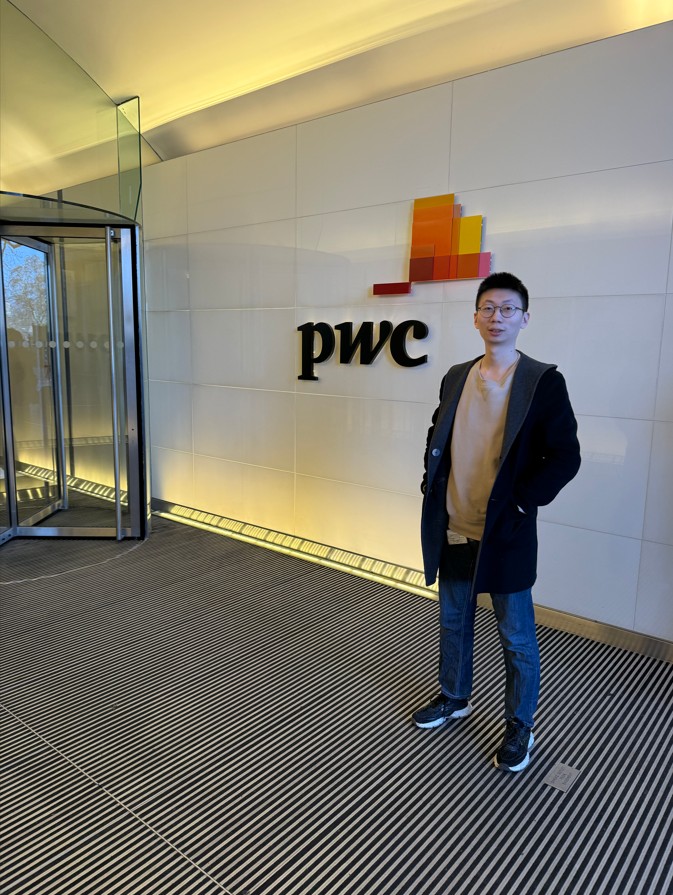
Respecting Diversity: The Foundation of True Communication
When giving advice to younger students, Howard emphasized that communication is not about eloquence, it's about understanding differences.
“Soft skills are rooted in respect for diversity… We often react defensively when facing challenging perspectives. The key is to pause, stabilize your emotions, and try to understand where the other person is coming from.”
In a world of rapid change, such an attitude is rare and valuable. Communication isn't about winning arguments, it's about expanding understanding. His view mirrors his approach to AI research: just as looking for the message behind data in algorithms, people grow look for the possibility to work together. True communication, like good design, lies in balance; and that balance begins with respect.
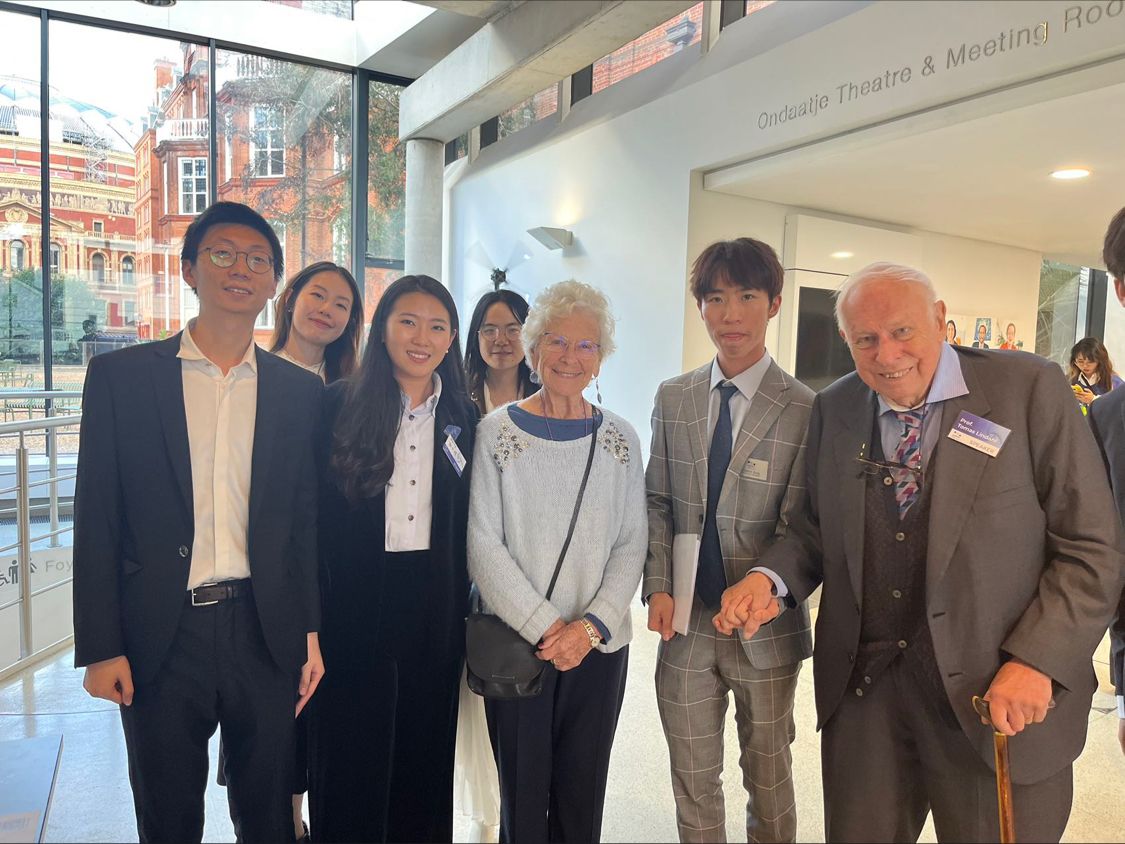
The Dulwich Continuum: Hidden Training Between Clubs and Career
Howard's fondest memories of DHSZ are of extracurricular activities: from the World Scholar's Cup to debate tournaments and the Video Challenge.
“If you've taken part in clubs at Dulwich, it's much easier to join them at university, you already have that experience. Those experiences made me more confident and willing to express my ideas.”
At LSE, he continued to lead student societies, organizing China Development Forum events and workshops. This shift from participation to creation became the foundation of his professional confidence. Reflecting on competitions like WSC and math contests, he shared that what mattered most wasn't the result, but resilience.
“When you experience something repeatedly, you gradually get used to it, you deal with the situation better.”
That “desensitization,” he said, later helped him stay calm in job interviews and presentations. “In today's world,” he added with a smile, “everyone needs to be able to express themselves publicly.” These formative experiences at DHSZ embody the essence of education: not eliminating fear but helping you speak through it.
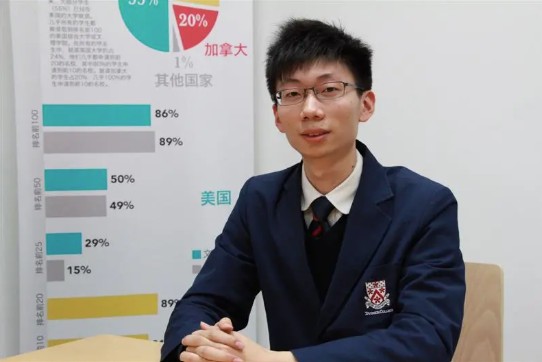
A Rational View on AI: Beyond the Hype
When discussing today's AI boom, Howard remains measured. He notes that generative AI's true value lies in knowledge reconstruction, offering breakthroughs in knowledge-intensive fields such as pharmaceutical research and academic discovery. But he also highlights the possible structural gap between generative AI and human-level intelligence (AGI).
“AI isn't a single field… it's an entire ecosystem, from data security to algorithms to user interaction. Every part is constantly evolving.”
Howard's insight reflects a mature skepticism: progress shouldn't be mistaken for perfection. The future of AI, he argues, lies not in bigger models but in richer ecosystems: in finding the human-technology interface where real value emerges.
“Technology advances fast… the greatest certainty is that we'll always need to keep learning.”
That statement, more than advice, feels like a worldview, a reminder that in times of change, curiosity is our only constant.
Stay Hungry, Stay Foolish: The Constant of Curiosity
When asked to summarize his journey, Howard cited Steve Jobs' iconic words:
“Stay hungry, stay foolish.”
In an industry evolving at lightning speed, curiosity and humility are his enduring principles. Rather than seeking to be “right,” he chooses to stay motivated and unsatisfied, driven by a belief that learning can change both ourselves and the world.
“Never settle for the present,” he said. “Let learning push you forward, and innovation make life better.”
In an age where humans and AI evolve together, curiosity remains the one intelligence that cannot be replaced.
Grow in Dulwich, Thrive in Life
In this episode, we not only heard Howard's journey from finance to AI but also witnessed how a Dulwich graduate continues to navigate a world of constant change with logic and curiosity. His story invites us to rethink what growth means thst is not a fixed path, but a continuous dialogue with knowledge, time, and self.
At the same time, student interviewer Erin's participation adds new depth to the conversation. For her, this was more than an interview, it was a first step toward the future. From alumni experiences, she drew not only insights but courage: the courage to ask, to explore, and to embrace uncertainty.
That, ultimately, is the essence of the DHSZ Alumni Talk series: to create spaces where stories become inspiration, and where connection between past and present continues to nurture growth.






